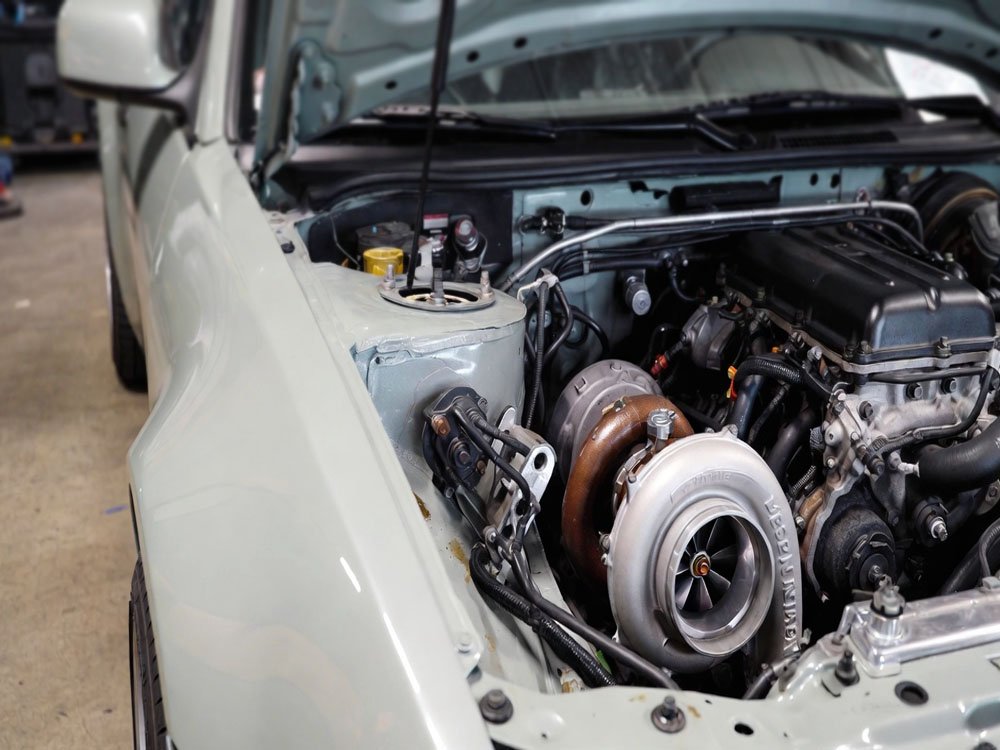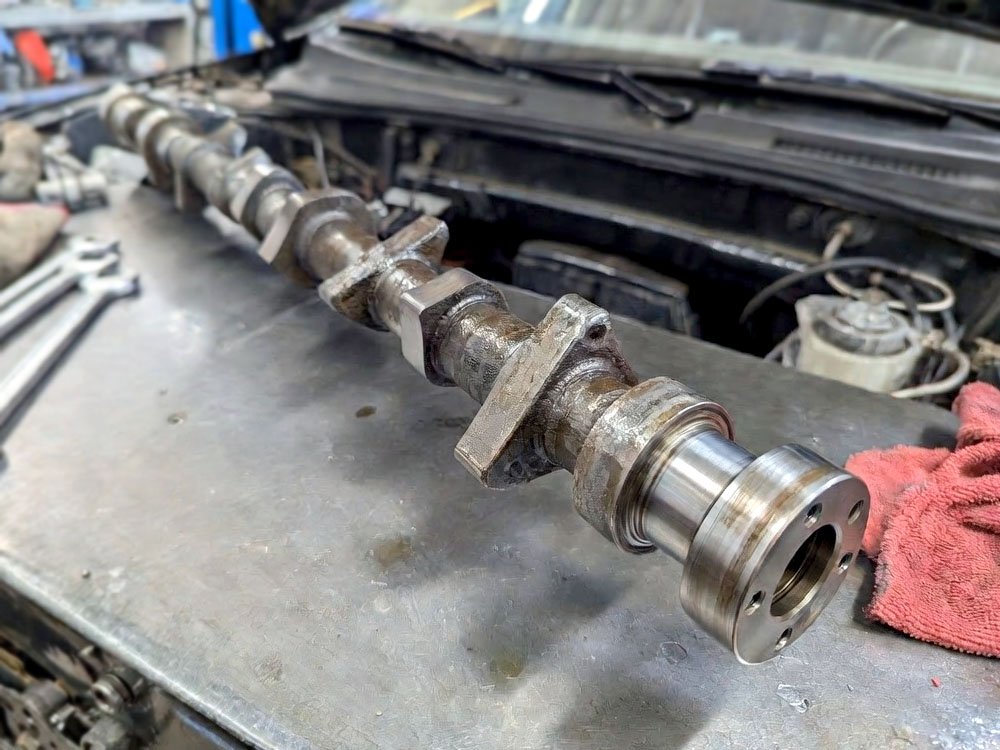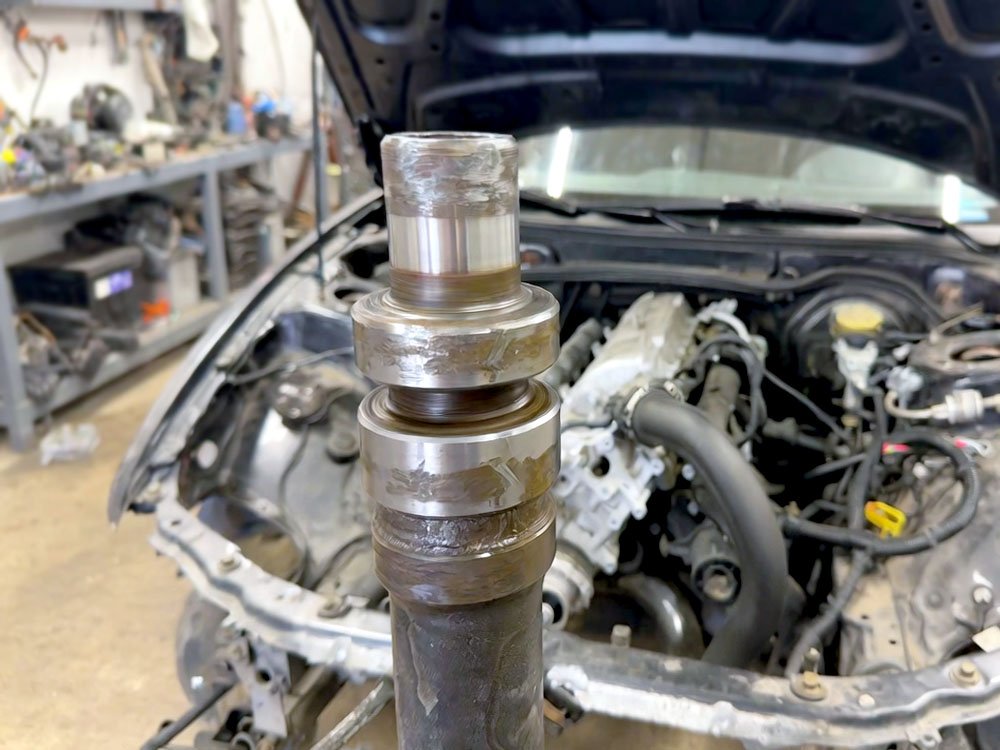Have you ever noticed your car shaking or vibrating when you hit the gas at low speeds? It’s super annoying, right? It can feel like something’s wrong, but you’re not sure what it is or how to fix it. If you’re dealing with this, don’t stress – you’re not alone. Cars can start shaking for all sorts of reasons, but the good news is, there’s usually a way to solve it. Let’s dive into everything you need to know about why your car vibrates when accelerating at low speeds, and most importantly, how to fix it.

Common Causes of Car Vibrations at Low Speeds
Car vibrations when you accelerate at low speeds can feel weird, like the car is out of control, and that’s not something anyone wants. These vibrations are usually a sign that something’s off with your car. Let’s break down the most common reasons your ride might be shaking.
Issues with the Tires
Let’s start with one of the simplest causes – the tires. It might sound too basic to be true, but your tires can definitely cause your car to shake. If your tires are unbalanced or have uneven wear, you’ll feel vibrations, especially when accelerating. Here’s why:
- Tire Imbalance: When your tires are unbalanced, they can cause the car to vibrate, particularly at certain speeds. When driving at low speeds, your car’s tires don’t roll smoothly, and that can lead to shaking. This imbalance might be due to something simple like a missing wheel weight or just old tires that have lost their shape.
- Uneven Wear: If your tires aren’t wearing evenly, it can also lead to vibrations. This uneven wear could be due to misalignment, poor suspension, or simply not rotating your tires often enough. So, if you’ve been running your car on uneven tires for a while, you might notice those annoying shakes when you press the accelerator.
Problems with the Suspension System
Your car’s suspension is designed to keep everything smooth, from your ride to how your tires interact with the road. When there’s a problem with the suspension, it can definitely cause vibrations.
- Worn-out Suspension Parts: Over time, parts of your suspension system, like shocks, struts, or bushings, can wear out. These parts are what help absorb bumps and keep your car from shaking. When they’re damaged, you might feel every bump in the road and notice vibrations when you’re speeding up, especially at low speeds.
- Misalignment: Another suspension-related issue could be misalignment. If your car isn’t properly aligned, the tires won’t be working together as they should. This can lead to uneven tire wear and cause vibrations when you accelerate.
Worn-out or Damaged Brake Components
Believe it or not, brake issues can also cause vibrations. Your car’s brakes are connected to the wheels, so if something goes wrong in the brake system, it can lead to shakes when you press the accelerator. Here’s how:
- Warped Brake Rotors: One of the main culprits here is warped brake rotors. When the rotors become warped (often from excessive heat or wear), they can cause the brakes to grab unevenly, which translates into vibrations you can feel through the car. Even if you’re not using the brakes at the time, warped rotors can cause shaking when accelerating.
- Old or Worn Brake Pads: Worn-out brake pads might also cause vibrations, especially if they’re unevenly worn or have become contaminated with dirt and debris. The friction they create with the rotors can lead to shaking when the car is in motion.
Transmission or Drivetrain Problems
Finally, let’s talk about the transmission and drivetrain. While these are a bit more complex and harder to diagnose than the issues above, they can certainly cause vibrations at low speeds. Here’s how:
- Transmission Issues: If your car has a manual transmission, the vibration might be coming from a clutch that’s not working properly. When the clutch engages or disengages, if it’s worn out or slipping, it can cause your car to vibrate when accelerating. For automatic transmissions, similar problems can occur if there’s an issue with the torque converter.
- Drivetrain Components: The drivetrain connects the engine to the wheels and includes parts like the driveshaft, axles, and CV joints. If any of these components are damaged or worn out, it can cause vibrations. For example, a bent driveshaft or worn-out CV joints can create shakes when you start to accelerate.
How to Diagnose the Vibration Problem
Now that you know the main causes of car vibrations when accelerating at low speeds, it’s time to figure out how to diagnose the problem. It’s important to do this step by step so you don’t miss anything crucial.
Step 1: Check Your Tires
The first thing you should check when you feel vibrations is your tires. Start by looking for any visible damage, like cracks or bulges, and see if the tread is worn unevenly. Uneven wear could be a sign that your alignment is off or that your suspension needs attention.
Next, make sure your tires are balanced. If you’ve never had them balanced, or it’s been a while, it might be time for a visit to the shop. You can also check the air pressure in your tires, as underinflated or overinflated tires can also lead to shaking.
Step 2: Inspect the Suspension System
If your tires look fine, the next thing to check is your suspension. Look for any signs of leaks or damage to the shocks or struts. You can also try pressing down on each corner of the car – if it bounces more than once, your shocks may be worn out.
If you hear clunking or knocking sounds when driving over bumps, that could be a sign that some suspension parts are loose or damaged. A mechanic can also check the alignment to see if it’s causing the issue.
Step 3: Examine the Brake System
Now, let’s move to the brake system. If you notice any vibrations or shaking when you apply the brakes, it could be a sign of warped rotors or worn-out brake pads. If the shaking happens even when you’re not using the brakes, it might be worth checking out the condition of the brake components.
You can also take a look at your brake rotors. If you see grooves or uneven surfaces, that’s a clear sign they need to be replaced. Any grinding noise when braking could also point to issues with the pads.
Step 4: Look at the Drivetrain and Transmission
If your tires, suspension, and brake system all check out, it’s time to look under the hood at your transmission and drivetrain. Listen for any unusual noises from the engine or transmission, like whining or grinding sounds, which could indicate a bigger problem.
Check the fluid levels for both the transmission and differential. Low or dirty fluid can lead to transmission issues and cause vibrations. If you’re noticing slipping gears or delayed acceleration, this might indicate a problem with the transmission.
How to Fix Car Vibrations When Accelerating at Low Speeds
Once you’ve identified the cause of the vibration, it’s time to fix the problem. Here are some common solutions to get your car back to its smooth, shake-free self.
Fixing Tire Issues
If your tires are unbalanced or damaged, it’s an easy fix. You can get your tires balanced at most auto shops. If your tires are too worn, you’ll need to replace them. Make sure to rotate your tires regularly to avoid uneven wear, and always keep an eye on your tire pressure.
Repairing the Suspension
If the suspension is the issue, you might need to replace worn-out shocks, struts, or other parts. If your car’s alignment is off, a simple alignment at a repair shop can solve the problem. If you’re not sure about the suspension, it’s best to let a professional check it out since it can be dangerous to drive with suspension problems.
Fixing the Brake System
If the brake rotors are warped or the pads are worn, you’ll need to replace them. This is a repair that can be done at most shops, but if you’re feeling confident, you might be able to tackle it yourself. Be sure to replace the pads as a pair (front or rear) to ensure even braking.
Transmission and Drivetrain Repairs
Transmission and drivetrain problems are trickier and can be expensive to fix. If your car is showing signs of transmission issues, it’s best to take it to a mechanic. They may need to replace the clutch, torque converter, or other transmission parts. Similarly, if there’s damage to the driveshaft, axles, or CV joints, those parts will need to be replaced.
When to Seek Professional Help for Car Vibrations
While it’s possible to fix some car issues yourself, there are times when it’s best to seek professional help. If the vibrations don’t go away after checking your tires, suspension, and brake system, it might be time to take your car to a mechanic.
For complex transmission or drivetrain problems, a professional inspection is essential. These parts are critical to your car’s safety and performance, so don’t take any chances.
I hope this article has helped you understand the common causes of car vibrations when accelerating at low speeds, how to diagnose the problem, and how to fix it. Vibrations can be scary at first, but with the right knowledge, you can tackle the issue and get back to smooth driving in no time. Don’t ignore those shakes – they might be telling you something important about your car!
Frequently Asked Questions
Is it dangerous if my car vibrates when accelerating at low speeds?
It can be dangerous if the vibrations are caused by issues with the suspension, brakes, or drivetrain. It’s important to address the problem as soon as possible to avoid further damage or safety risks.
Can tire issues cause vibrations at low speeds?
Yes, unbalanced tires or uneven tire wear can cause vibrations when accelerating at low speeds. It’s always a good idea to check your tires first when experiencing vibrations.
Do I need to replace my tires if they are causing vibrations?
If your tires are causing vibrations due to wear or imbalance, balancing or replacing them is usually necessary to restore smooth driving.
Is it possible to fix suspension problems at home?
Some minor suspension issues, like replacing shock absorbers or struts, might be fixable at home if you have the right tools and experience. However, it’s often safer to have a professional handle suspension repairs.
Can warped brake rotors cause vibrations?
Yes, warped brake rotors can cause vibrations when driving, especially when braking. If the vibrations happen when accelerating, it’s a good idea to check the brake system.
Is it expensive to fix transmission problems causing vibrations?
Transmission repairs can be expensive, depending on the severity of the issue. It’s best to have a professional inspect your car to determine the exact problem and get an accurate cost estimate.
Do vibrations mean my car is unsafe to drive?
Not necessarily, but persistent vibrations, especially if they worsen, can signal serious issues. It’s best to get your car checked by a mechanic if you’re unsure.
Can a car with drivetrain issues be driven safely?
Driving with drivetrain issues can be risky. If you suspect your car’s drivetrain is the cause of the vibrations, it’s essential to have it repaired as soon as possible to avoid potential breakdowns or further damage.


